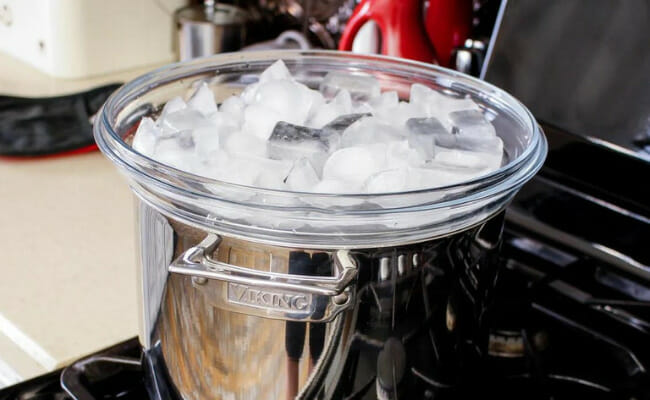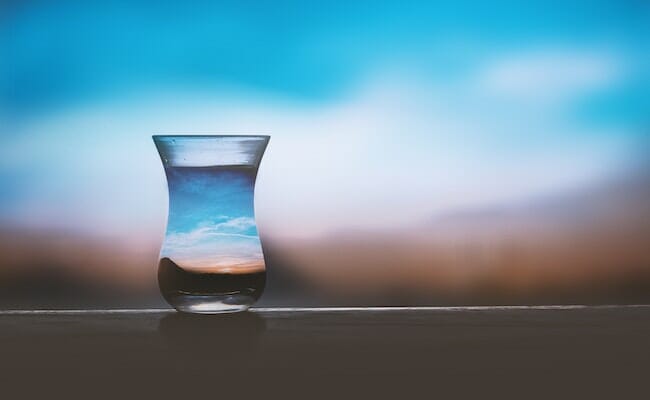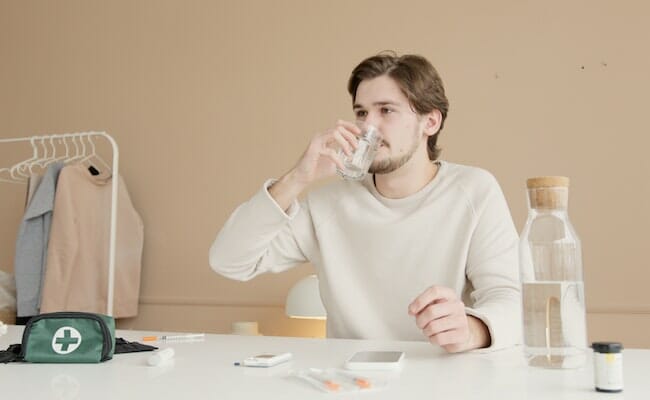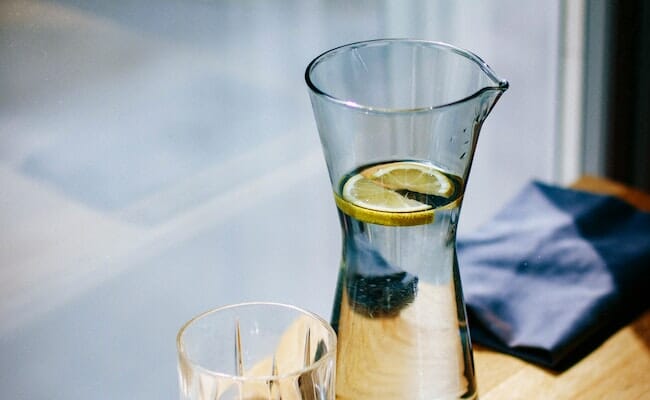How to Make Distilled Water at Home
Most people drink bottled water because they cannot drink straight from the tap. That can be quite expensive, so why not try and make distilled water at home? Fortunately, there are many ways you can do so.
Aside from saving money, learning how to make distilled water can be crucial during an emergency. Moreover, it can come in handy while you are hiking or camping. If your water goes out, naturally distilled water becomes highly essential.
This article will define distilled water and compare it with other types of water. Also, it will discuss the various purposes of this type of water. More importantly, we will go through five methods you can distill rain and tap water.
Steps of the home distillation process

Photo Credit: www.cnet.com
You can purify water into distilled water by evaporating it. Boiling water turns it into vapor, leaving minerals and other impurities in the container.
Then, it cools into a liquid in another container, transforming it into distilled water. You can prepare your home distillation kit with the following tools:
- Large pot with a lid
- Glass bowl
- Metal baking rack
- Stove
- Oven mitts
Make sure the pot and the baking rack consist of metal. Once you gather the necessary tools, follow these steps:
First, put the baking rack in the large pot and pour water. The racks should be at the bottom, and the liquid should fill the pot nearly halfway.
Second, place the glass bowl on the baking rack to prevent it from coming into contact with the pot’s base. Moreover, the bowl should float on the water’s surface, and there must be enough space for air to circulate around the top and sides of the bowl. As a result, it could collect water.
Third, place the pot lid upside-down on the pot. Next, fill the lid with ice cubes to cool and condense the water. Use oven mitts to avoid scalding your hands.
Fourth, boil the water and focus on the ice cubes in the lid. Make sure the fire is hot enough for the water to simmer, not boil. If the ice melts, pour it into your sink and place fresh ice cubes.
Fifth, wait roughly 45 minutes to turn the tap water into distilled water. The distillation process is complete once all of it has evaporated and condensed into the bowl.
You should have safe drinking water after these steps. However, you should wait for it to cool completely. Boiling water could damage your pitchers and other containers.
What makes distilled water different?
Here is an easy way to remember distilled water: it is 100% pure water! Water naturally flows through rivers and springs, carrying minuscule bits of rock and soil.
Bottling companies eliminate harmful bacteria and chemicals in their water. However, they leave the minerals in the water to maintain the natural taste. As a result, people often refer to bottled water as mineral or spring water.
Distilled water does not contain these elements, so it often tastes flat. Moreover, it does not conduct electricity! An electric current may only flow through water if it contains minerals and other conductive materials.
Of course, you should not try to test this property of water at home. Instead, you should see what sets distilled water from other types by reading the list below:
Tap water
As the name suggests, tap water comes from your faucet. Did you notice that this article said that “most people drink bottled water because they cannot drink straight from the tap?”
Tap water quality varies per location, so you may find places where you could safely drink tap water. For example, Japan’s purification methods turn it into potable water for its citizens
Meanwhile, drinking tap water in other countries could harm your health. For instance, Flint, Michigan, had a water crisis because its supply had traces of lead.
Filtered water
Run your water through a filter, and you get filtered water. That filter could be as simple as a piece of cloth during emergencies. You could find survival videos and websites suggesting it in desperate situations.
Of course, the safer way is to use a home filtration system. You could install one to your sink so that it would purify your running water. Also, you could try a filtration pitcher or water bottle.
These tools contain layers of micron and carbon filters that keep chemicals out of your drink. Unlike the home system, you may easily carry it around outdoors.
Purified water
Some countries provide potable water with the help of various methods. First, they add positively charged chemicals that bind with negatively charged residue.
This process is flocculation, forming them into larger chunks called floc. Second, sedimentation occurs when the floc separates from the water by sinking to the bottom.
Third, the system directs the water into charcoal, gravel, and sand filters. Consequently, they remove harmful chemicals, bacteria, viruses, and dust.
Finally, the system adds disinfectants to eliminate contaminants, creating purified water. It is similar to distilled water, except the former requires less energy.
Note that it is only energy-efficient on a national scale. Most countries collect rainwater for purification, while others use seawater. If you need clean water for your home, it is much better to know how to make distilled water.
Do I need distilled water?
You might be wondering why people choose distilled water. After all, it sometimes tastes awful and takes significant effort to create. However, it is more than mere drinking water.
For example, you might be conscious about your hair. Tap water may contain chlorine and fluoride that dulls its sheen, so you might want to rinse it with distilled water.
Some infants have weak immune systems, so they need distilled water for their baby formula. However, most parents may simply boil water for their children.
You might need to drink distilled water to prevent your allergies from acting up. Also, you might need a neti pot to clear your sinuses during a seasonal allergy.
You might have clothes with fabric sensitive to certain minerals. Ironing them with mineral water could damage their colors. Instead, you may replace it with distilled water.
The metal in car parts may easily corrode due to mineral water. Also, it could damage the batteries. Consequently, some drivers opt for distilled water for cleaning their vehicles.
If you snore loudly, you may need distilled water. You can solve that problem with a CPAP machine, but it requires this type of water. Otherwise, it may degrade sooner.
If you have a pet fish, you might harm them by using distilled water in their aquarium. You should add sea minerals if there are no alternatives available.
Do you know the best thing about distilled water? You could store it at home forever! Tightly seal the container, and keep it away from direct sunlight.
Also, you may set it aside later after opening a container. However, seal it again tightly to prevent bacteria from contaminating it. They usually spread in filthy water but could also grow in distilled water.
Potential issues with distilled water
If distilled water is safe, why aren’t more people drinking it? One of the reasons is that buying bottled water is faster and easier than preparing home distillation kits.
Drinking this type of water may deprive your body of essential minerals that serve as electrolytes. They facilitate the balance of fluids in your body, maintaining its proper function.
Studies suggest that consuming distilled water lacking magnesium and calcium may lead to various health conditions. For example, you may feel tiredness, muscle cramps, and heart disease.
Coffee fans use the finest ingredients to create the perfect brew. Specifically, they want a specific quality for their water. Does this mean distilled water is the best choice?
The Coffee Association of America begs to differ. It says people need water must contain a specific level of minerals to extract the best cup.
Conclusion
Distilled water is 100% pure, making it ideal for various purposes. For example, a baby with poor immunity may need distilled water for milk formula.
However, you may want to stick with drinking mineral water to maintain your health. It contains electrolytes that maintain your bodily functions and prevent adverse conditions.
Also, you could turn tap water into distilled water with a few kitchen utensils. The previous steps can help you stay hydrated in case of emergencies.
Frequently asked questions
Is boiled water the same as distilled water?
Boiled water may still contain minerals and other residues, so it does not count as distilled water. However, you could purify it with a makeshift home distillation kit.
What can I use in place of distilled water?
Depending on your health conditions, you may safely drink mineral water if you run out of distilled water. You may want to set aside the latter to ensure a backup supply.
Does distilled water expire?
Distilled water can stay safe for human consumption if stored properly. Tightly seal your supply and keep it away from direct sunlight to ensure it remains potable.




